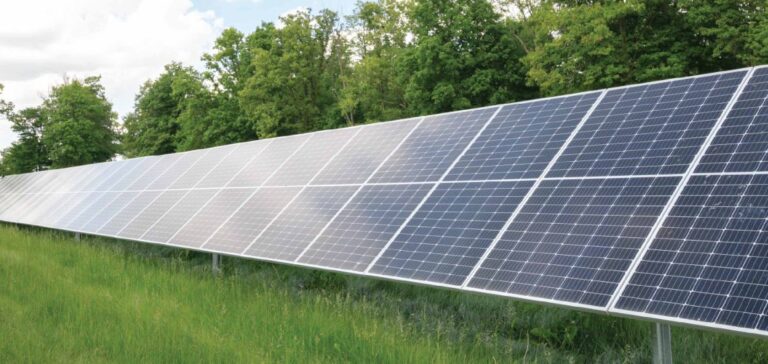The municipality of Fremont Township in Saginaw County has been awarded $600,000 through the Renewables Ready Communities Award (RRCA) programme by the Michigan Department of Environment, Great Lakes, and Energy (EGLE). This recognition follows the township’s partnership with EDP Renewables North America LLC to develop the 120-megawatt Eagle Creek Solar Park.
The Eagle Creek Solar Park is designed to generate electricity for the equivalent of 33,500 average Michigan households. In addition to power generation, the project is set to deliver substantial local financial returns, with over $41mn in taxes allocated to local governments, and an additional $68mn to participating landowners through land leases and neighbour agreements.
Long-term fiscal and territorial impact
According to EDP Renewables North America LLC, the construction of the site will create more than 250 temporary jobs. Upon completion, several permanent roles will be established to manage and maintain the facility. The company has also emphasised the indirect economic benefits, such as local expenditure linked to construction activities, including catering, accommodation services, and the engagement of regional contractors.
Tom LoTurco, Executive Vice President for the Eastern Region, Canada and Government Affairs at EDP Renewables North America, praised the collaboration with the municipality and highlighted the broader economic significance of the project for the entirety of Saginaw County.
Public funding supporting local infrastructure
The RRCA programme is intended to provide flexible grants to Michigan’s local governments for additional services and infrastructure related to energy projects. The funding awarded to Fremont Township reflects a model of targeted redistribution, where revenues from such developments are reinvested locally.
The Eagle Creek site strengthens EDP Renewables North America’s presence in the state and exemplifies the increasing mobilisation of public capital in support of large-scale energy developments. Authorities have stated their goal is to maximise economic returns for host communities without requiring direct financial contributions from residents.






















